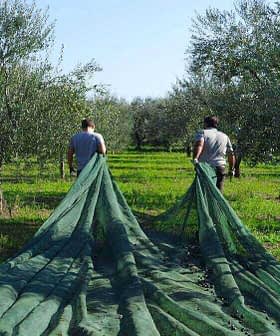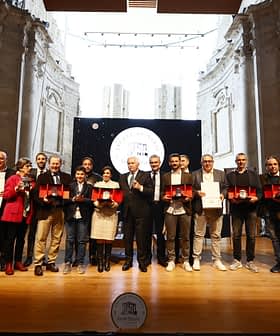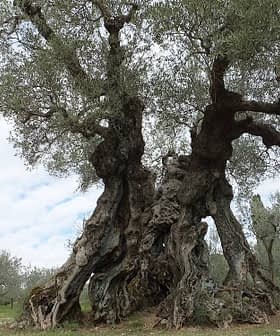Authorities in the southern Italian region of Puglia have announced a phytosanitary strategy to curb the spread of the deadly Xylella fastidiosa bacterium for 2023 and 2024.
The announcement marks the first time regional authorities have approved a multi-year plan since Xylella fastidiosa started to spread in Italy in 2013.
The regional action and our commitment are constant to give farmers and businesses the tools to preserve the olive-growing heritage and a strategic economy for Puglia.
Apulian authorities have budgeted €7.7 million for the strategy, which confirms the location and number of infected red zones, where past Xylella fastidiosa outbreaks are constantly monitored.
One of the new plan’s critical components is improving monitoring, which has resulted in the early detection of infections.
See Also:New Effort to Save Xylella-Hit Olive Trees in Apulia“Monitoring is crucial in the prevention and the fight against the bacterium,” Donato Pentassuglia, Puglia’s regional secretary of agriculture, told Olive Oil Times.
“The monitoring numbers, constantly updated through our dedicated regional portal, show a significant and timely control through plant analysis conducted not by the visual approach but by deploying precise statistical sampling techniques and advanced molecular tests.”
Local experts routinely take seven to 10 samples from olive trees and vegetation in at-risk areas for each hectare of farmland. Sampling can be more extensive if the risk is considered greater, such as in the proximity of recently discovered outbreaks.
Sampling focuses on the dozens of species susceptible to Xylella fastidiosa bacteria.
Xylella fastidiosa
Xylella fastidiosa is a bacterium that causes plant diseases, including in olive trees. Xyella is responsible for the spread of olive quick decline syndrome (OQDS), which has caused extensive damage to olive groves in Southern Italy.
“The more we can detect [the infection] early, make early diagnoses and quickly apply containment measures on infected plants and new outbreaks, extinguishing outbreaks by culling, the more we reduce the advance of the olive disease,” Pentassuglia said.
This kind of monitoring allows for establishing the boundaries of the infected areas, where special containment protocols are applied.
As mandated by European Union regulations, such protocols include destroying all infected trees and all surrounding vegetation in a 50 meters radius.
Within such a radius, the new plan would typically require the destruction of dozens of centuries-old trees in the Monumental Olive Tree Valley, even if not infected. However, the E.U. has made an exception to spare the culturally and historically significant trees.
The Apulian Administrative Tribunal (TAR) recently took this idea further and said it might also spare infected trees on privately-owned land in the valley from destruction.
According to a local citizens’ committee, which supported the landowner in her legal action, the current strategies to prevent the spread of Xylella fastidiosa have resulted in desertification “with immeasurable damages to the economy, tourism, society and environment.”
Gennaro Sicolo, president of CIA Puglia, an agricultural association, told Olive Oil Times that most farmers and landowners affected by Xylella fastidiosa had accepted the deployment of the destruction protocols. Some have even proceeded to apply them on their own.
“Luckily, only a few preferred to go to court to block eradication,” he said. “The only result they get is to help Xylella fastidiosa spread further.”
The new biennial regional Xylella fastidiosa containment plan has been adopted well ahead of the spring when the insects responsible for spreading the bacteria begin to proliferate.
According to the local government, this timing will allow authorities to deploy all the containment measures as the new season approaches. Farmers agree.
“With the new plan, this year there will be enough time to make all stakeholders participate in the new containment strategies, which also means better action planning,” Sicolo said.
Pentassuglia, the regional secretary to agriculture, emphasized that beyond monitoring the infection, the local government has sustained farms affected by the epidemic and supported the olive farming regeneration by planting resilient cultivars.
However, members of CIA Puglia believe that more can be done. “In the last few years, local institutions have accelerated the containment actions, the monitoring operations and the eradication [of the infected trees] significantly,” Sicolo said. “But there is a need for quicker and more synergic action.”
“That is why we proposed the appointment of a dedicated emergency manager with full powers, extraordinary resources and means, able to enact eradications in just a few weeks after an outbreak is reported,” he added. “Xylella fastidiosa is no less an emergency than Covid-19 has been and should be treated as such.”
Sicolo emphasized how the most significant objective now for farmers and officials is preventing the spread of the bacteria farther north, which would endanger hundreds of thousands of olive groves. “Those are the areas of the excellency of Apulian olive oil production,” he said.
Among the measures enacted throughout the whole region is the mandatory removal of vegetation known to serve as habitats for the vector insect populations.
“We wonder if extraordinary funds should be transferred to farmers to help them execute these best practices,” Sicolo said. “We also wonder if the public entities that manage roads, channels, and railways have always correctly executed the containment actions provided by the regulations against the bacteria.”
The future of the Apulian olive tree heritage remains uncertain. “Currently, there is no cure for Xylella fastidiosa, which the European Food Safety Authority has confirmed based on scientific evidence,” Pentassuglia said.
“We can, however, prevent, monitor, and act promptly to reduce and block the spread through eradicating diseased plants,” he added. “And we can, as we are proceeding, invest in constant and assiduous scientific research, in field trials that will represent… new opportunities for rebirth, also through cultural diversification.”
The social, historical and emotional link between locals and olive trees has tested the resilience of more than one generation of Apulian citizens since the first outbreaks.
“The regional action and our commitment are constant to give farmers and businesses the tools to preserve the olive-growing heritage and a strategic economy for Puglia,” Pentassuglia concluded. “And above all, to create the conditions for a real revitalization in the medium-long term of our extraordinary territory.”










